1. Problem clarification
After clarifications by OP in comments it become clear that the main goal is checking overlapping time periods.
E.g.
- combination of periods (
01:00:00-02:00:00, 02:01:00-03:00:00) - is allowed in the same day
- (
01:00:00-05:00:00, 02:01:00-03:00:00) or (01:00:00-03:00:00, 02:00:00-04:00:00) - are disallowed
(I hope that I understood correctly)
Checking for overlapping periods is typical task and I even found existing answer on SO: Date range overlapping check constraint
2. Proposed solution
With a little modification I can propose this solution: http://sqlfiddle.com/#!18/e2146/2
CREATE TABLE Schedule (
ID BIGINT IDENTITY PRIMARY KEY,
DDate date,
ST_TIME time,
END_TIME time
);
-- UNIQUE CONSTRAINT
CREATE UNIQUE INDEX UI_DDATE_ST_TIME_END_TIME ON Schedule(DDATE, ST_TIME, END_TIME);
-- CONSTRAINT FOR OVERLAPPING PERIODS
CREATE FUNCTION [dbo].[fn_chkOverlapping]
(
@DDate AS DATE,
@ST_TIME AS TIME,
@END_TIME time
)
RETURNS BIT
AS
BEGIN
RETURN (
SELECT
CASE
WHEN @ST_TIME>@END_TIME THEN 0
WHEN EXISTS(
SELECT 1 FROM [dbo].[Schedule]
WHERE
@DDATE = DDATE
AND @END_TIME >= ST_TIME
AND END_TIME >= @ST_TIME
) THEN 0
ELSE 1
END
)
END;
ALTER TABLE [dbo].[Schedule] WITH CHECK ADD CONSTRAINT [CK_Overlapping] CHECK ([dbo].[fn_chkOverlapping]([DDate],[ST_TIME],[END_TIME])=0);
3. Alternatives
It's absolutely possible to do this using triggers.
I myself prefer to define constraints by CREATE CONSTRAINT than other object types.
It's a question of taste not of necessity.
